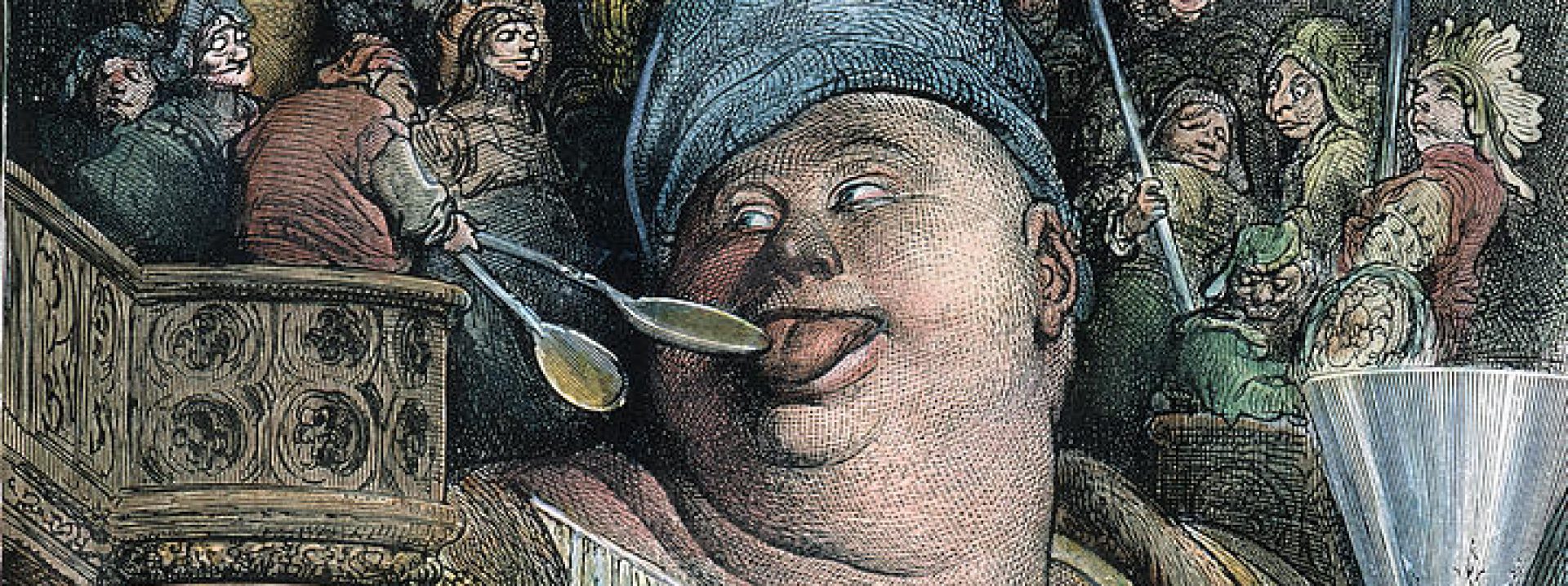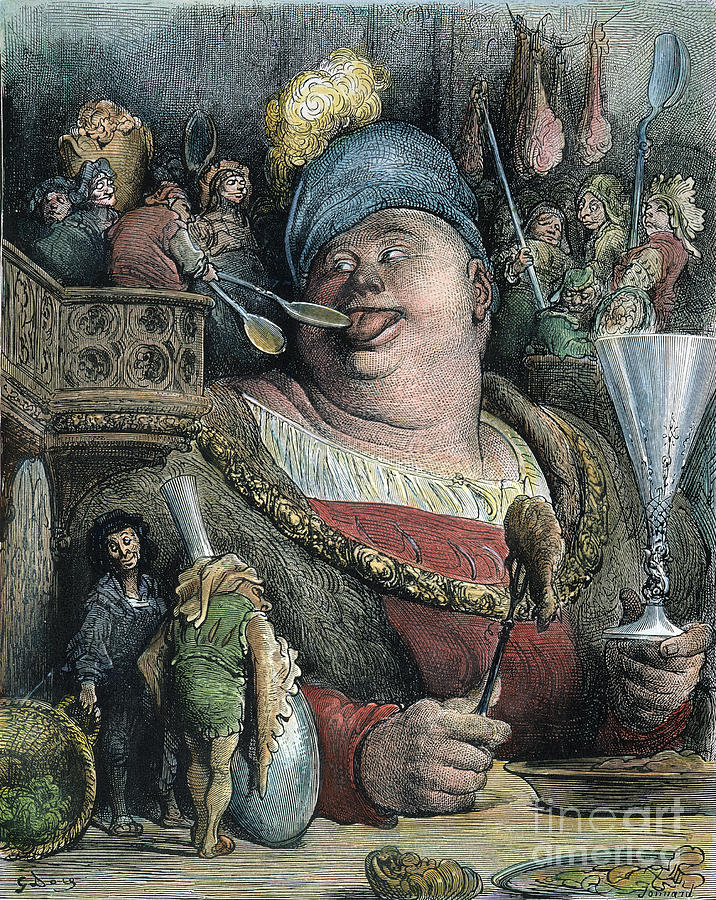I came into this course having previously done some research on Bakhtin’s grotesque theory for a children’s literature English class. My understanding of Bakhtin at this point in time was limited, but I saw the “Bawdy Bodies” class as an opportunity to pursue my growing interest in the literary critic further. The transition from studying Bakhtin in the context of children’s literature to Greek Comedy, François Rabelais, etc. was jarring, as was the transition from studying literature in a classics/comparative literature class rather than an English class. In English classes (at least in my experience), there is a focus on close-reading and reader-response theory, and not so much on the historical context and authorial intent. In our class, I appreciated how we were able to explore texts within the contexts of historical and cultural background.
Because of this class, I have started to see (read?) the grotesque everywhere, whether that be in novels I am reading for fun or in material for a history class I am taking. The text from this class that has been most influential for me was Bakhtin’s Rabelais and His World. This book has worked as a guide to understanding not only the grotesque and carnivalesque better, but also as a guide to reading better. In engaging with Bakhtin, I have grown as a literary analyst. I also found it endearing that a man who suffered as much as Mikhail Bakhtin did could believe so ardently in the sense of unity that the grotesque and carnivalesque provide. While I did find Bakhtin’s philosophy to be flawed and limited in some cases, (in particular his limited engagement with female writers) a lot of his work is at the very least reassuring.

